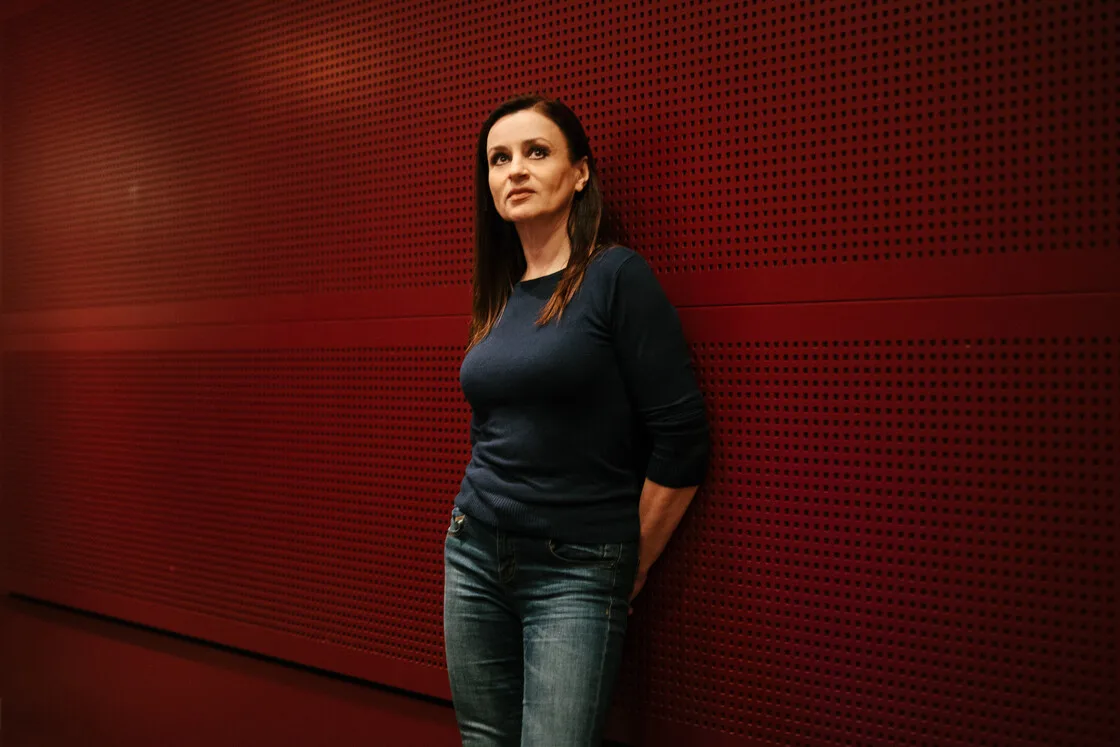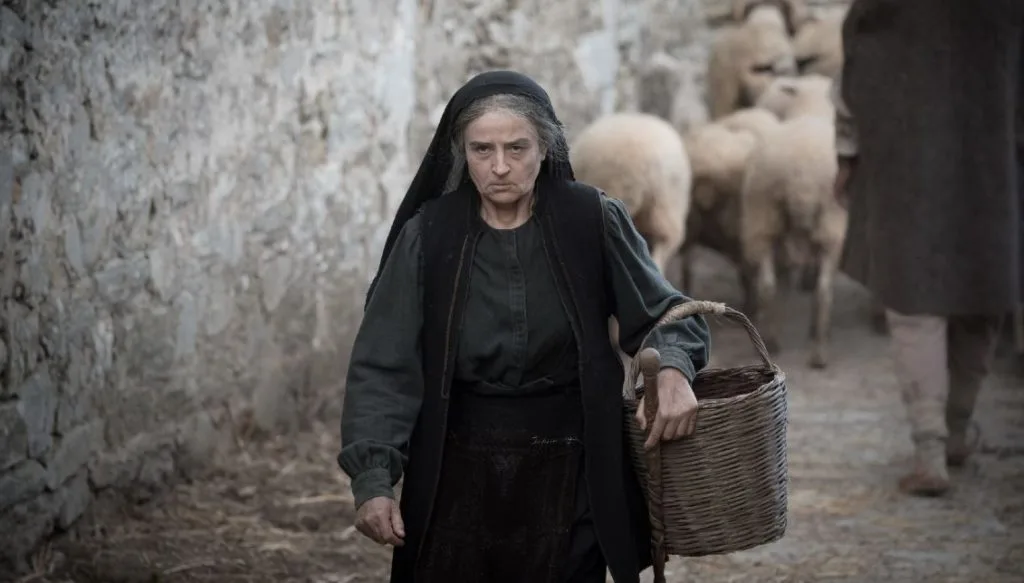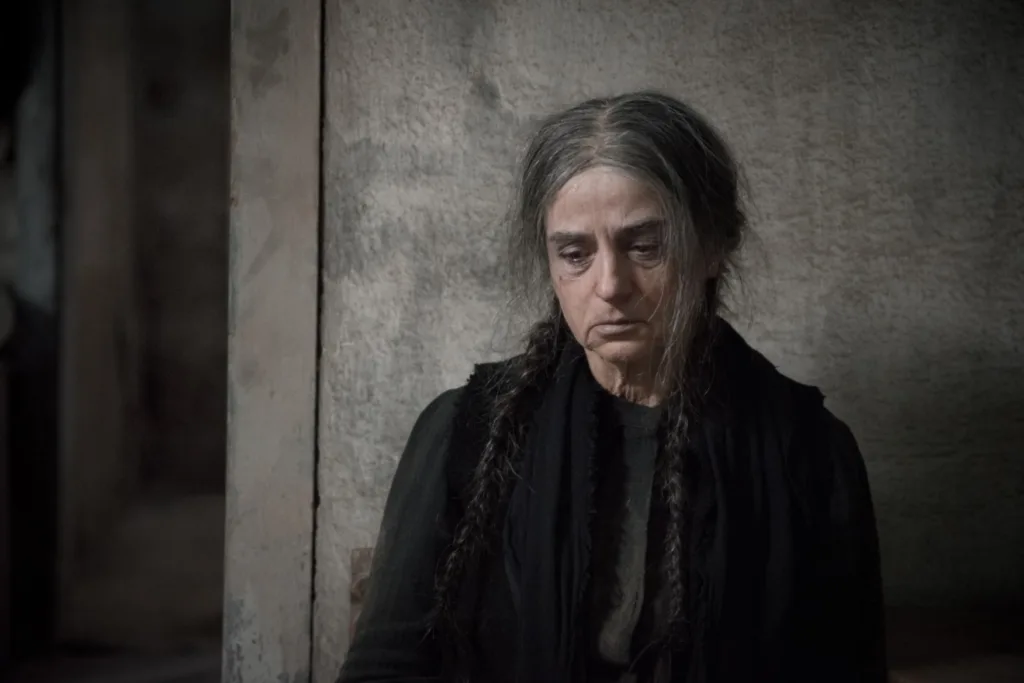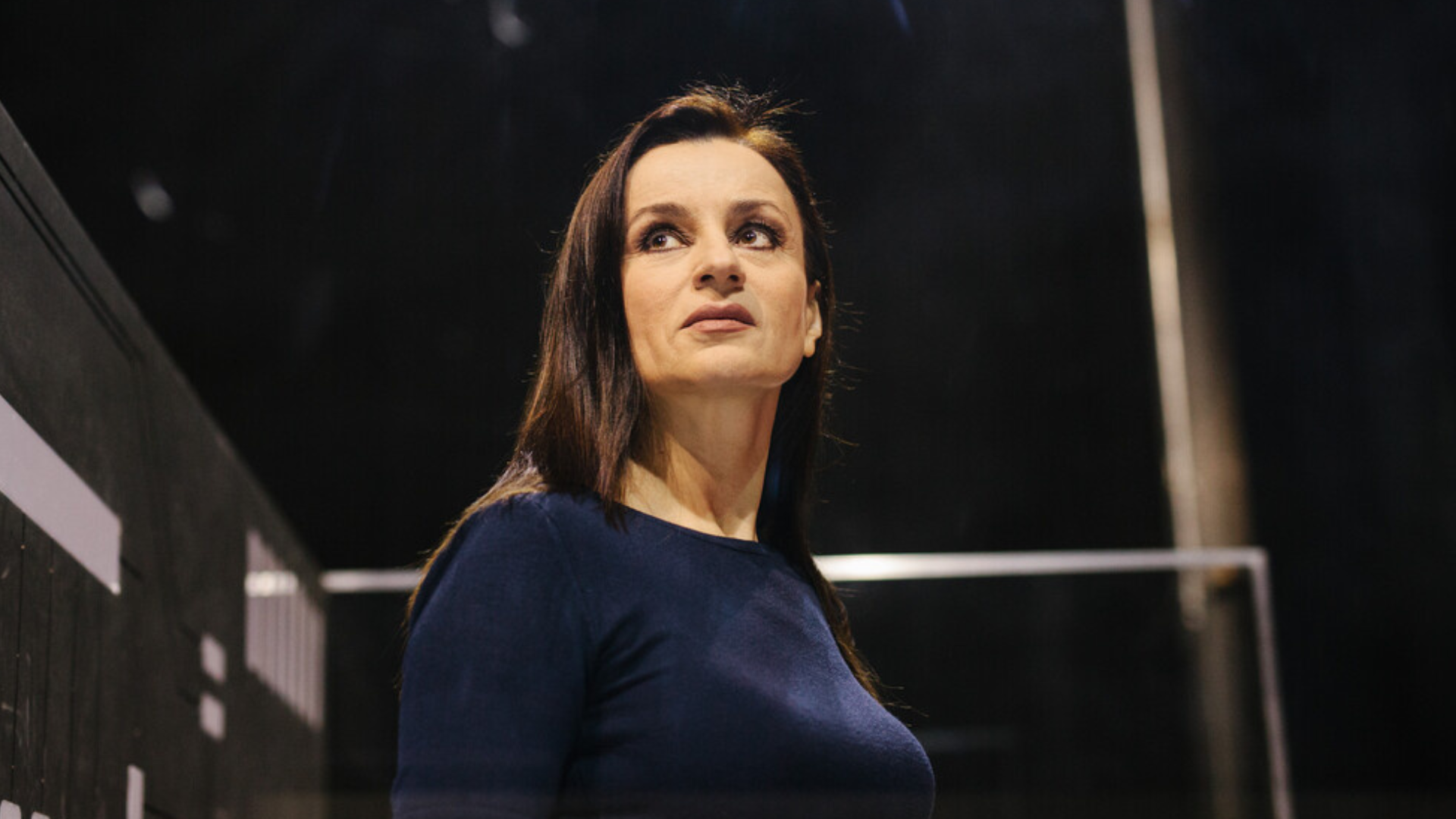By Thodoris Roussos
The iconic figure of Greek theatre and cinema, Karyofyllia Karabeti, opens her heart to The Greek Herald just before the premiere of The Murderess at the 29th Greek Film Festival in Sydney.
The esteemed actress discusses her role in the dramatic film, a 2023 Greek production directed by Eva Nathena, based on the masterful novel The Murderess by Alexandros Papadiamantis.
As she delves into the psyche of the novella’s protagonist, Karabeti shares the elements that make the film one of the most remarkable works worldwide.

To start, could you share your experience in New York?
It was an extraordinary experience. The director of The Murderess, Eva Nathena, actress Maria Protopappa, who also stars in the film, and I were invited to the Greek Film Festival in New York, where our film won the Audience Award for Best Feature Film. The Greek community adored the film, engaging deeply in the discussion that followed the screening and sharing their concerns about the status of women today and the rise of gender-based violence.
What do you consider the highest honour for an actor at the beginning of their career, and later when they achieve widespread recognition, as you have?
Serving the art with immense dedication and consistency, making careful artistic choices, and through those choices speaking to the audience with spirituality and inner truth about the significant issues facing humanity. This artistic integrity will bring both public appreciation and recognition from colleagues over time, which ultimately constitutes the highest honour.
What has been the greatest challenge in your career? Do you consider The Murderess to be one of them?
Every role is a significant challenge; things are never simple. I enjoy delving into the character I portray as deeply as possible, approaching it holistically, understanding its psyche, and serving it as best as I can. The Murderess features an emblematic character, multi-layered with conflicting emotions, and trying to understand and portray her has been one of the most challenging tasks I have undertaken.
Fragkoyiannou, the heroine of Papadiamantis’ novella, is consumed by conflicting emotions. How difficult was it for you and Eva Nathena to convey a different message from the final acts of The Murderess, and what is that message?
Everyone who worked on this film wanted to address one of the most significant issues of all time: the status of women then and now, the reality that our gender is unwanted and even killed from infancy, the abuse of women, and the femicides that have become a global scourge.
Fragkoyiannou’s actions are not a result of depravity but of profound despair. Having lived a harsh and tortured life as a woman, she believes that by killing little girls, she frees them from the miserable life that awaits them, offering them a gift of love. Our aim was not to justify her crimes but to show the moral perpetrator behind them, which is none other than social violence, of which Fragkoyiannou herself is a victim. This deep exploration into the darkness of her soul and her world was a painstaking process for all of us, but our faith in our goal and the film’s message empowered us daily with strength and hope.
You mentioned in a recent interview that roles of the beautiful or fatal woman made you feel uncomfortable compared to roles reflecting the more “damaged” periods of a heroine’s life. Did you feel this with The Murderess?
Yes, absolutely. It was liberating to transform through aging makeup into a heroine who was not at all concerned with her external appearance but solely with her psyche. This allows you to focus more on your performance and engage with much more substantial matters.

What can the Greek community in Australia expect from the film’s premiere, and what would you advise them to absorb from the work?
They should know that they will see a very artistic film, based on one of the most emblematic works of Greek literature, sending a powerful global message. In the film’s end credits, we see that according to UNESCO and UN data, from 1990 to 2013, 200 million women have disappeared from the global population due to femicide.
Through the work done in the screenplay, direction, performances, representation of the era, cinematography, and music of the film, they will connect deeply with Greece and their national and personal narratives. They should focus on the despair of Fragkoyiannou and understand that when a mother, grandmother, and midwife chooses to become an angel of death for little girls to save them, it illustrates the magnitude of her desperation.
How important do you think festivals like the Greek Film Festival in Sydney are for the diaspora?
Wherever there is a Greek diaspora, Greek Film Festivals serve as a bridge connecting to Greece. The community engages with Greek art, sees the concerns of new creators regarding significant contemporary political and social issues, and strengthens ties between the homeland and the diaspora.
We experienced this in all the festivals we attended, in Los Angeles, San Francisco, New York, Boston, and many European countries. Personally, I had this experience years ago, not through cinema that time but through theatre when I played “Medea” by Euripides with the National Theatre of Greece in Sydney and Melbourne. Older audiences certainly remember that performance, as I recall their emotion and pride in the high level of art in Greece, which had become an ambassador of culture worldwide through a significant international tour.

How do you perceive the love of the audience after so many years of a brilliant career?
It is a tremendous honour, joy, and emotion to receive the love and appreciation of the audience. There is no greater reward. It means that the effort you have made all these years, all your sacrifices and anxieties were worth it because you contributed something significant to people. You hear it in their words, you see it in their eyes. And you gain strength to continue.
Finally, what is your answer to the question posed to all actors: “theatre or television”?
For me, there is only one answer: quality. Each medium has its advantages and disadvantages. In theatre, you have the opportunity to perform in great works and experience live interaction with the audience. Unfortunately, the level of television in Greece is not yet as high as it has evolved in other countries in recent years. However, there is always the possibility of doing bad theatre or good television.
I have primarily focused on theatre because even in times of crisis, I knew I could guarantee high-level work only there. However, I have also had the honour to participate in very good TV series’, mainly adaptations of literary works. From now on, I would like to have the opportunity to work more in cinema because it is something I have missed due to particular circumstances in Greece.
I would like to conclude with a message or words from you.
Let us all resist evil, let us not allow violence, war, and greed to dominate our lives. Let us combat every negative element, every notion of racism, sexism, and aggression, and give space to solidarity and respect for human rights. Only then can we find harmony, peace, and a purpose in our existence.
Thank you very much for your wonderful questions. I wish good luck to the festival. I send my warmest greetings to the Greek community in Australia, and I thank you and your newspaper. Please convey my thanks to everyone.
For more details about the upcoming Greek Film Festival in Sydney and how to purchase tickets, you can visit https://greekfilmfestival.com.au/
Event details:
- What: Premiere of Murderess by Eva Nathena
- When: Saturday, 19th October 2024 | 8.30pm
- Where: Palace Cinema Moore Park (122 Lang Rd, Moore Park, NSW, 2021)
- Tickets: https://shorturl.at/DgicB
